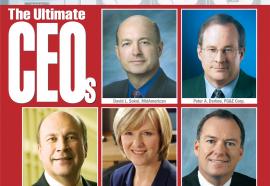Merchant Transmission Redux
Financial transmission rights and regulated returns have not induced needed construction. Presenting an alternative model.
By almost any measure, the nation is running short of transmission, and the existing volume of investment cannot long continue to reliably accommodate retail-load growth and larger wholesale volumes. Factors like environmental opposition also have caused declines and delays in transmission investment, but it seems clear that financial transmission rights and regulated returns have not sufficed to induce the necessary construction. The authors propose a new model to reward investors who lower congestion costs.











